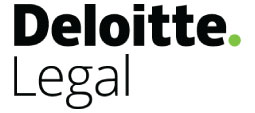Since the early 1990s, following the fall of the Iron Curtain, international law firms have established and expanded their presence in the Czech Republic, creating a dynamic legal market alongside burgeoning local firms. Deloitte Legal Czech Republic Managing Partner Martin Bohuslav and CMS Prague and Bratislava Partner Helen Rodwell explore the strategic entries, exits, and endurance of these firms amidst evolving market conditions and economic challenges in the region.
Checking In and Checking Out
“International law firms have maintained a significant presence in the Czech Republic since the early 1990s following the fall of the Iron Curtain in 1989,” Bohuslav says. “Major Western firms established branches in Prague, quickly developing them into full-fledged offices serving both private clients and the Czech government. Concurrently, a boom in the Czech legal sector saw the rise of domestic law firms, marking over three decades of coexistence and competition between international and local players.”
Resonating this, Rodwell adds that, “in the early 1990s, the CEE region witnessed a surge of big international law firms eyeing capitalism as a lucrative opportunity.” However, “the landscape has shifted since then,” she says, with many international players retreating, favoring local partners for deal work. “Take Linklaters, for example, adopting a ‘break-away firm’ strategy with Kinstellar in 2008 after exiting the Czech Republic,” Rodwell says.
Rodwell adds that these are not standalone cases. “Freshfields Bruckhaus Deringer, Dewey & LeBoeuf, and Hogan & Hartson departed earlier due to fee pressures and fierce competition,” she notes. Moreover, Rodwell says that “Hogan Lovells and Norton Rose Fulbright followed suit in 2014, citing market challenges. Despite exits, the Czech Republic retains firms like us, Allen & Overy, and Clifford Chance, alongside DLA Piper, Dentons, and White & Case. The legal market in the country employs 11,498 individuals, with businesses expanding their workforce, indicating resilience amid economic headwinds.”
Indeed, Bohuslav agrees, adding that domestic firms have strengthened their position in the past 15 years, “attracting leading partners from departing international firms and adopting corporate cultures formed by their global experience.” Noerr’s exit, according to him, is the latest development of this kind.
Compared to other CEE countries, the presence of international law firms in the Czech Republic is still relatively robust, according to Bohuslav. “While countries like Poland and Hungary may have larger legal markets due to their population size and economic strength, the Czech Republic offers stability, a favorable business environment, and a strategic geographical location, attracting international firms. In contrast, some CEE countries may face challenges such as political instability, regulatory uncertainties, or smaller markets, leading international firms to prioritize the Czech Republic over other locations in the region,” he posits.
Rodwell agrees, assessing that while “Poland has the highest number of competitors/international law firms of the CEE jurisdictions,” in comparison to neighboring CEE countries, “the presence of international law firms in the Czech Republic remains robust. While certain firms have withdrawn over the years, the country still hosts a diverse array of global players.” Rodwell feels that this stable presence “underscores the Czech Republic’s attractiveness as a legal market within the region, despite fluctuations observed elsewhere.”
The Stickiness Factor
Continuing, Bohuslav shares that he feels one of the principal reasons for this attractiveness is the country’s “well-established industrial base, thriving technology sector, and (not-so-great but still good) foreign investment inflows.” Furthermore, the economic stability makes it “an attractive destination for multinational corporations, which in turn sustains demand for legal services.” Additionally, he feels that considerations such as “regulatory environment, and connectivity to global markets also influence firms’ decisions to stay or leave.”
Moreover, Bohuslav says that “the size of the Czech market, while smaller compared to some other countries in the region like Poland in terms of population and GDP, still offers lucrative opportunities for international law firms.” Consequently, the legal market “reflects a dynamic interplay between international and domestic firms, characterized by competition, collaboration, and evolving client preferences. While international firms bring global expertise and resources, Czech firms and lawyers offer local insight and personalized service, ensuring a diverse and competitive landscape benefiting clients and legal professionals alike,” he says, contrasting the two.
“Despite the recent economic contraction, the legal services industry has shown resilience with a modest annual growth of 1.5% between 2019-2024, reflecting a steady demand for legal expertise,” Rodwell chimes in. “Incentives for international law firms to stay in the Czech Republic may stem from the post-pandemic landscape, where logistical demands and labor requirements have surged. The country’s strategic and central location for logistic centers, coupled with abundant and affordable labor, presents opportunities for deal-making and expansion,” she explains. Moreover, she feels that the country’s established legal infrastructure may incentivize international firms to “maintain their presence despite market fluctuations.”
“The strategies of law firms vary, influencing decisions on whether firms will remain represented directly, through international networks, or cooperating law firms,” Bohuslav says. “Some firms prefer a centralized approach and function as branches of global entities, while others opt for a slightly decentralized collaboration that allows a degree of autonomy to individual branches. Or an independent cooperating law firm could be an option as well,” he explains.
“The implications for multinational law firms maintaining offices in the Czech Republic are twofold,” Rodwell notes. “On one hand, the thriving legal market in neighboring Poland poses a competitive challenge, potentially shifting the focus toward establishing hubs in Poland over other CEE countries,” she says. “This could lead to consolidation and a re-evaluation of office locations. However, the positive post-pandemic economic outlook in the Czech Republic presents opportunities, especially with the expansion of logistics, construction, digital industry investment, and tourism. Multinational firms need to weigh these factors carefully, balancing the competitive landscape with the growth potential and strategic advantages offered by maintaining a presence in the Czech Republic,” she explains.
Much More to Come
Taking aim at the road ahead, Bohuslav shares that “large clients require the resources of large law firms to address complex legal needs. Currently, clients highly prioritize services related to the transformation of their businesses in a changing world. This includes support and stabilization of business in relation to the state, such as tax and financial administration, audits, and disputes.” Moreover, he reports that “development and restructuring of businesses, including acquisitions, sales, real estate, and corporate portfolio structure, as well as private services such as succession planning, are in high demand.”
Having all of this in mind, Bohuslav believes that a reality emerges in which the Czech Republic continues to represent an “attractive environment for the international law firms to stay connected to the Czech market, or the CEE market as such. However, the form of presence depends on the law firm’s strategy.”
For Rodwell, based on the country’s market outlook, “several trends emerge that are likely to impact the legal sector: the construction industry is expected to rebound, significant funds are being allocated to support the digital transition in the Czech Republic, the tourism industry is growing, and we expect an expansion of EV charging infrastructure.” She feels that lawyers specializing in construction, technology, tourism, and energy law are “likely to see heightened activity as they advise clients on regulatory compliance, contracts, transactions, and dispute resolution in these evolving sectors.”
This article was originally published in Issue 11.4 of the CEE Legal Matters Magazine. If you would like to receive a hard copy of the magazine, you can subscribe here.


